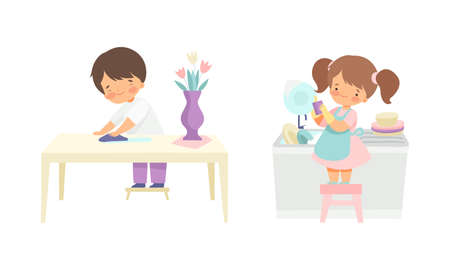Defining Parental Anxiety in the UK Context
As a new dad living in the UK, I quickly learned that parental anxiety isn’t just about worrying whether your baby is too hot or too cold at night. It’s this underlying nervousness that creeps in, sometimes unexpectedly, and it’s shaped by the unique environment we raise our kids in here across Britain. Parental anxiety in the UK refers to the ongoing feelings of unease, worry, or dread parents experience as they juggle daily responsibilities, societal expectations, and their child’s wellbeing. British parents face certain pressures that are quite particular to our culture—whether it’s navigating the school system, dealing with NHS waiting times, or feeling judged at the school gates for not having the “right” pram.
It’s common for these anxieties to manifest in different ways. Some days, it might be a nagging feeling that you’re not doing enough. Other days, you find yourself double-checking every little thing, from packed lunches to screen time limits. And let’s be honest: British weather doesn’t always help when you’re stuck indoors with a toddler bouncing off the walls! To break it down further, here’s how parental anxiety often shows up among UK mums and dads:
Manifestation |
Typical UK Scenario |
|---|---|
Worry Over Education |
Concerns about school catchment areas and Ofsted reports |
Health & Safety Fears |
Navigating NHS advice vs. family traditions |
Financial Pressures |
Balancing childcare costs with returning to work post-maternity/paternity leave |
Social Comparison |
Feeling inadequate on social media or at parent groups (hello, NCT!) |
Lack of Support Networks |
Coping without extended family nearby—especially for expats or those living far from home towns |
The reality is that being a parent here isn’t just about following the “mum’s net” forums or listening to what your mates down the pub say—it’s about understanding these unique pressures and realising you’re definitely not alone in feeling anxious now and then.
Common Causes of Parental Anxiety
As a new dad myself, I can tell you first-hand that parental anxiety is a familiar companion for many mums and dads across the UK. It often feels like there’s a never-ending list of things to worry about, and sometimes it helps just to know you’re not alone. Let’s break down some of the most common triggers British parents face in their day-to-day lives.
Work-Life Balance
Juggling work commitments and family time is a major source of stress for many parents here. Whether you’re returning from maternity or paternity leave, working part-time, or navigating hybrid office schedules, the pressure to “have it all” can feel overwhelming. There’s also the guilt – am I spending enough quality time with my little one? Am I letting my colleagues down?
Schooling Worries
From choosing the right nursery or primary school to keeping up with homework and extracurricular activities, schooling concerns are high on the list. The process of applying for school places – especially in competitive catchment areas – can be nerve-wracking. Then there’s SATs, GCSEs, and A-levels further down the line, adding more layers of stress.
Navigating the NHS
The NHS is a fantastic resource, but it can also be a maze for new parents. Getting GP appointments, understanding vaccination schedules, or accessing specialist support like speech therapy or mental health services all come with their own set of challenges. Sometimes just knowing where to turn or who to ask can be tricky.
Family Expectations and Social Pressures
In the UK, there’s often an invisible rulebook handed down by well-meaning relatives or friends about how parenting “should” look. Whether it’s pressure to breastfeed, stick to certain routines, or even compare milestones at baby groups, these expectations can heighten anxiety. The desire to live up to family standards – while also finding your own way – is something nearly every parent faces.
Summary Table: Typical Triggers for Parental Anxiety in the UK
| Anxiety Trigger | Typical Concerns |
|---|---|
| Work-Life Balance | Lack of time, guilt over priorities, flexible working struggles |
| Schooling Worries | Choosing schools, academic performance, peer relationships |
| Navigating the NHS | Accessing appointments, understanding services, waiting times |
| Family Expectations | Cultural traditions, advice from relatives, social comparisons |
Real Talk from a New Dad:
I remember panicking when our GP appointment was delayed and feeling clueless at baby groups when other parents seemed to have it all together. If you recognise yourself in any of these scenarios, know that your worries are valid – and very much shared by fellow UK parents.

3. Recognising the Signs: How Anxiety Shows Up
Parental anxiety doesn’t always look the same for everyone, and as a new dad myself, I’ve realised it can sneak up in the most unexpected ways. Sometimes, you might brush things off as “just being tired” or “worrying like any parent would,” but recognising the signs early on can really make a difference. Let’s break down how anxiety can show itself – physically, emotionally, and behaviourally – with some real-life examples from my own experience navigating fatherhood in the UK.
Physical Signs
It’s easy to dismiss physical symptoms as just lack of sleep (something every new parent in the UK knows all too well), but sometimes there’s more to it. Here’s what to watch out for:
| Sign | Example from a New Dad’s Life |
|---|---|
| Tension headaches | After another sleepless night with my little one, I noticed my head pounding every morning – not just tiredness, but constant worry about whether I’m doing things right. |
| Stomach issues | That nervous stomach before baby’s jabs at the local GP – even though I know it’s routine, my body feels like I’m facing an exam. |
| Fatigue beyond normal tiredness | I found myself absolutely drained even after a rare full nights sleep, simply from overthinking every nappy change and feeding schedule. |
Emotional Signs
The emotional side can be harder to spot, especially when you’re used to “keeping calm and carrying on.” Here are a few ways anxiety might show up:
- Irritability: Snapping at your partner over small things – like who forgot to buy nappies at Sainsbury’s again – and then feeling guilty about it.
- Overwhelming worry: Lying awake imagining worst-case scenarios about your child’s health or future, even when everything is actually fine.
- Feeling detached: Sometimes I caught myself going through the motions during bath time without really feeling present – just lost in anxious thoughts.
Behavioural Signs
Anxiety can also affect how you behave day-to-day. From my own journey as a new dad, here’s what stood out:
- Avoidance: Skipping NCT meet-ups or playgroups because you’re worried you’ll say or do something ‘wrong’ around other parents.
- Checking and re-checking: Double- and triple-checking that the car seat is fitted correctly before every trip to Tesco (even if you did it perfectly last time).
- Seeking reassurance: Constantly asking your partner or Health Visitor if you’re doing enough or if baby is developing “normally.”
The Takeaway for UK Parents
If any of these signs ring true for you, know that you’re far from alone. Parental anxiety is common here in the UK, especially with all the pressures we face today. By understanding how it shows up physically, emotionally, and behaviourally, you’ll be better equipped to manage it – for your wellbeing and for your family’s too.
4. Impact of Parental Anxiety on Children and Family Life
Parental anxiety doesn’t just affect us mums and dads; it has a real knock-on effect on our kids, partners, and even the wider family circle. Having gone through the early days with a newborn myself, I can honestly say that those worries—whether about sleep routines or just getting out the front door—sometimes spilled over into our day-to-day family life.
Effects on Children
Children are like little sponges—they pick up on everything. If you’re feeling tense or anxious, your child might sense it, even if you’re trying to keep a brave face. In my own experience, when I was overly anxious about my baby’s feeding schedule, my daughter seemed to become more fussy and unsettled. Research from the NHS and UK parenting charities suggests that ongoing parental anxiety can impact children’s emotional wellbeing, sometimes leading to clinginess or difficulties at nursery and school.
Effects on Co-Parents
Anxiety can also take its toll on relationships with partners. You might find yourselves snapping at each other more often or disagreeing on how to handle situations. My partner and I had our fair share of late-night debates about bedtime routines—mostly fuelled by lack of sleep and underlying worries. Communication can break down, leaving both parents feeling misunderstood or unsupported.
Common Relationship Challenges (UK Family Scenarios)
| Scenario | Potential Impact | Tips for Management |
|---|---|---|
| Worrying about finances post-maternity leave | Tension between partners over budgeting and work-life balance | Open discussion about priorities; seek advice from UK support services like Citizens Advice |
| Concern over child’s development (e.g., speech delays) | One parent becomes overly protective, causing friction | Share concerns with health visitors; attend local parenting groups for reassurance |
| Anxiety about external family opinions (grandparents, in-laws) | Arguments about “the right way” to parent; feelings of judgement | Set clear boundaries; agree as a couple before involving others in decisions |
The Wider Family Dynamic
Anxiety doesn’t just stay within the four walls of your home—it often ripples out to grandparents, siblings, and extended family. In British culture, where Sunday roasts with the whole family are still a tradition, misunderstandings can arise if relatives don’t understand what you’re going through. For example, when my mother-in-law offered “helpful advice,” I’d sometimes feel judged rather than supported. These moments can either bring families closer together or create new tensions if not managed sensitively.
Key Takeaway
The impact of parental anxiety is far-reaching, but recognising it is the first step towards keeping family relationships strong. By opening up conversations at home and seeking local support—from NHS resources to UK-based parent meet-ups—you’ll find you’re not alone in facing these challenges.
5. Support Systems and Resources in the UK
Being a new parent in the UK can feel overwhelming at times, especially when anxiety creeps in and you’re not quite sure where to turn for help. From my own experience as a new dad, I quickly learned that there’s no shame in seeking support – in fact, it’s often the bravest thing you can do. Thankfully, the UK offers a range of resources tailored specifically for parents facing anxiety, whether you prefer face-to-face chats or online communities. Below is an overview of some of the most reliable support systems available:
| Resource | Description | How to Access |
|---|---|---|
| NHS Services | The NHS provides mental health support, including talking therapies (IAPT), health visitors, and GP referrals for parental anxiety. | Contact your GP or visit NHS Mental Health |
| Local Support Groups | Many local councils and children’s centres run support groups where parents can share experiences and get advice from professionals and peers. | Check your local council website or ask your health visitor for details. |
| PANDAS Foundation | A charity offering support for parents experiencing perinatal mental health issues, including anxiety and depression. | Visit PANDAS Foundation for helpline and support group info. |
| Mumsnet & Netmums | Popular online communities where parents discuss concerns, share tips, and support each other through forums and articles. | Register at Mumsnet or Netmums |
If you’re more comfortable connecting digitally (like I was during those long sleepless nights), online communities such as Mumsnet or Netmums are invaluable. You’ll find plenty of threads dedicated to parental anxiety, all filled with honest advice from fellow mums and dads who truly get what you’re going through. Don’t underestimate the power of a simple forum post – sometimes just knowing you’re not alone can be a huge relief.
For those who’d rather meet face-to-face, local children’s centres often host drop-in sessions with other parents. I found these sessions incredibly helpful, both for practical advice and friendly reassurance over a cuppa.
Remember: reaching out isn’t a sign of weakness – it’s a real strength. Whether it’s through NHS services, charities like PANDAS, or supportive online forums, there’s always someone willing to listen and help you navigate the ups and downs of parenthood here in the UK.
6. Practical Strategies for Managing Parental Anxiety
As a new dad living in the UK, I quickly discovered that parental anxiety is something most of us face—especially when we’re running on little sleep and a lot of tea! Over time, I’ve picked up some practical, tried-and-tested strategies that genuinely help manage those anxious moments. Here’s what works for me and many other British parents day-to-day.
Build a Support Network
Don’t be afraid to reach out. Whether it’s chatting with your partner over a cuppa or joining local parent groups (NCT and local Facebook groups are lifesavers!), connecting with others in similar shoes helps normalise worries and provides handy advice specific to life in the UK.
Establish Simple Routines
Children thrive on routine, but so do parents. Setting small, manageable daily routines—like bedtime stories at 7pm or Saturday park trips—can ease uncertainty and make daily life feel more predictable. Here’s an example of how you might structure your day:
| Time | Activity | Tip |
|---|---|---|
| 7:00 am | Wake-up & breakfast | Start with a calm breakfast together; avoid screens early on. |
| 10:00 am | Outdoor play / Walk to the park | Fresh air really does wonders for everyone’s mood—even when it’s drizzling! |
| 1:00 pm | Lunchtime & quiet time | Try reading together or listening to an audiobook. |
| 4:00 pm | Screen time / chores | A bit of CBeebies while you prep dinner is perfectly fine. |
| 7:00 pm | Bedtime routine (bath, story, cuddles) | This helps both child and parent wind down after a busy day. |
Breathe and Take Breaks
If you feel overwhelmed, step away for a minute—even if it means sticking your head out into the garden for a few deep breaths. The British weather can be brisk, but it’s oddly grounding!
Use Trusted Resources
The NHS website is packed with reliable information about child health and parenting worries. Bookmarking a few key pages has saved me from panicking late at night when Google throws up all sorts.
Tried-and-True Tools I Swear By:
- Kettle breaks: A quick cup of tea is more than tradition—it’s self-care.
- Anxiety journals: Jotting down worries helps put them into perspective.
- Pushing the pram outdoors: A stroll around the estate often calms both baby and dad.
- Saying yes to help: If your mum offers to babysit for an hour, accept it gratefully!
- Tuning into parenting podcasts: There are loads of brilliant UK-based shows offering practical tips and solidarity.
Remember, You’re Not Alone
No matter how overwhelming things may feel at times, remember that plenty of parents across the country are feeling just the same. Sharing experiences—whether over WhatsApp or at soft play—makes everything that bit easier. And sometimes, just laughing about the chaos with another knackered dad at nursery drop-off is all you need to reset for the day ahead.
7. When to Seek Professional Help
As a new dad, I know how easy it is to brush off our worries as just part and parcel of parenting. But there are times when parental anxiety can become overwhelming or start interfering with daily life. It’s important to recognise when it’s time to reach out for professional support, both for your own wellbeing and for your family’s sake. In the UK, there are clear pathways to get help – and you’re not alone.
Recognising the Signs
If you find your anxiety is constant, stops you from sleeping, impacts your ability to care for your child, or starts affecting your relationships, these are signs that a bit more support could make all the difference. Other red flags include persistent low mood, panic attacks, withdrawing from friends and family, or feeling hopeless. Trust me – reaching out isn’t a sign of weakness; it’s one of the bravest things a parent can do.
Who Can You Approach?
| Professional | How They Can Help |
|---|---|
| GP (General Practitioner) | Your first port of call. GPs can assess your situation, provide advice, prescribe medication if needed, or refer you to local mental health services. |
| Health Visitor | Especially useful in the early years, they offer support and guidance on both physical and emotional aspects of parenting. |
| Mental Health Services (NHS Talking Therapies) | Offer counselling, cognitive behavioural therapy (CBT), and other treatments tailored for anxiety and depression. |
| Charities & Helplines | Organisations like Mind or PANDAS Foundation provide support groups and helplines specifically for parents struggling with anxiety. |
Steps to Take
- Book an appointment with your GP: Don’t worry about ‘wasting their time’ – mental health is just as important as physical health.
- Mention your concerns honestly: Be open about how you’re feeling and how it’s impacting you day-to-day.
- Ask about referrals: Your GP can direct you towards NHS Talking Therapies or local support groups if needed.
If Immediate Help Is Needed
If you ever feel at risk of harming yourself or others, or your anxiety becomes unbearable, contact NHS 111 or visit A&E straight away. There’s absolutely no shame in seeking urgent help – every parent deserves support.
Remember
You’re not alone in this journey. Many UK parents face similar challenges, and there’s a whole network ready to help. Reaching out might seem daunting at first (I’ve been there myself), but getting the right support can make all the difference for you and your little one.


